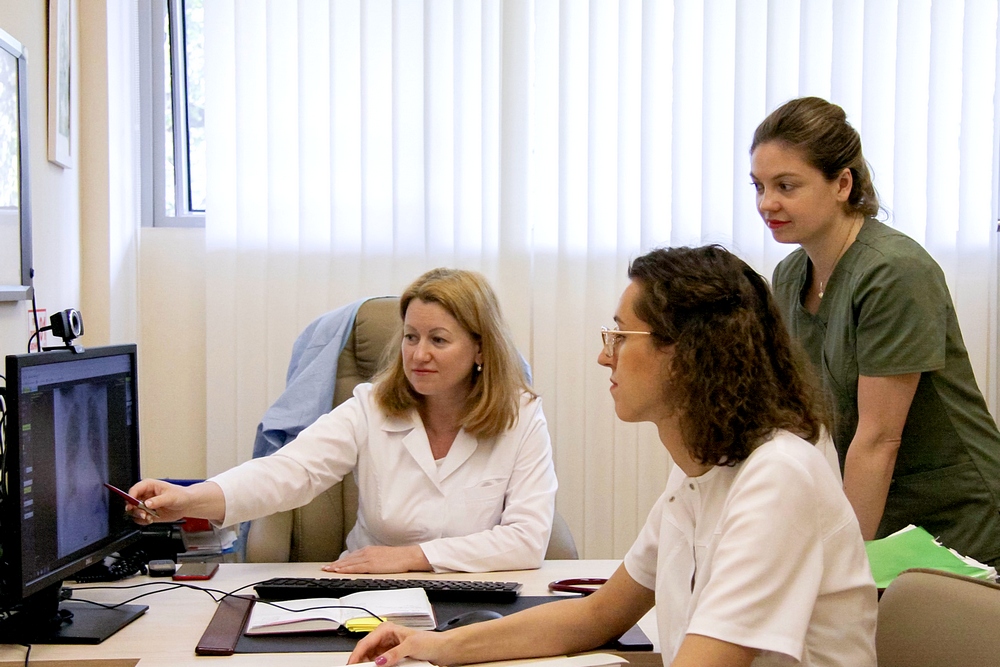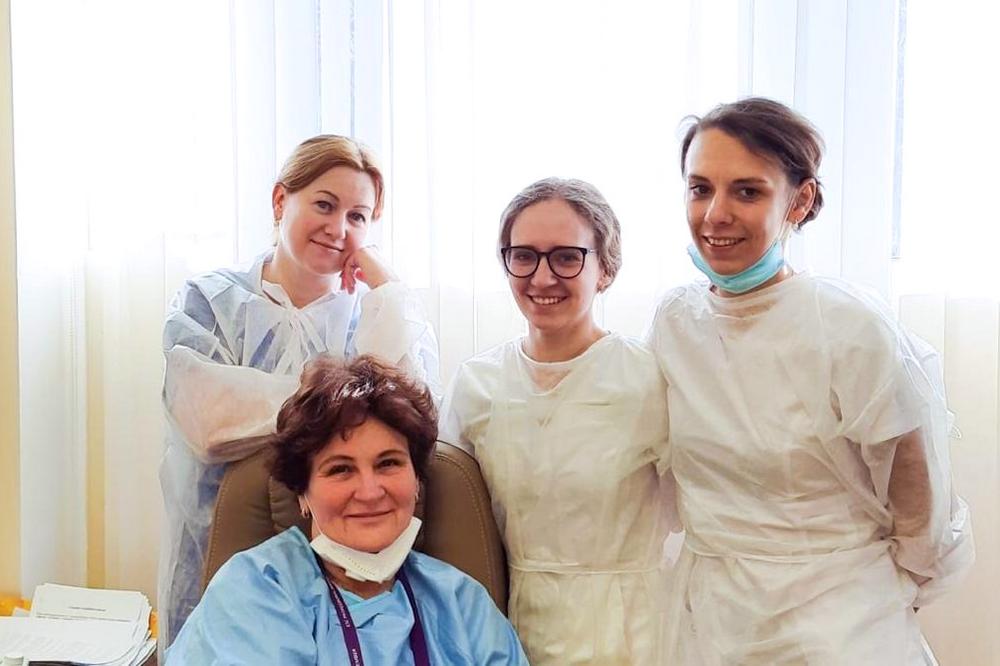
In February 2021, a 54-year-old male with dilated cardiomyopathy and severe manifestations of heart failure was admitted to Almazov Centre in an extremely severe condition.
Earlier in January, the patient had COVID-19 with polysegmental pneumonia, at the same time he was first diagnosed with heart disease. After discharge from a city hospital, the patient experienced severe shortness of breath, weakness, very low blood pressure, he could not move even about the room.
The patient had a consult at Almazov Centre and was hospitalized right away. The examination showed that heart contractility was only 1/6 of the normal value (ejection fraction was 11%, the normal value being 60%) and revealed a history of pulmonary embolism with the formation of large areas of pneumonia and life-threatening rhythm disturbances.
Since the patient had very low blood pressure due to poor heart contractility, he received continuous infusion of inotropic drugs to support his blood circulation. For a long time, it was not possible to cancel this therapy, since with each attempt the condition worsened, and the selection of treatment was complicated by bradycardia and very low blood pressure. Control echocardiography showed no improvement in cardiac contractility.
At that time, heart transplantation seemed the only possible option. The transplantation committee made a decision to put the patient on the waiting list.
To improve cardiac contractility, a drug was administered, with the effect lasting 2 to 3 weeks, which made it possible to stop the continuous IV infusion and implant an ICD.
All these measures made it possible to prescribe a comprehensive drug therapy that improved the patient's condition. Control echocardiography showed a 2-fold increase in cardiac contractility (from 11 to 22%), reduced manifestations of heart failure, normalized blood pressure and the absence of life-threatening rhythm disturbances.
At its second meeting, the transplantation committee decided to suspend the patient from the waiting list and consider his discharge for outpatient follow-up.
The patient is currently at home, he is feeling well, he walks several kilometers a day and plans to get back to work.

The patient
Properly selected drug therapy combined with minimally invasive intervention (implantation of an ICD) greatly improved not only the patient's condition, but also the prognosis for his life. At this point, we cannot claim that the patient managed to completely avoid the necessity of heart transplantation, perhaps this is just a temporary suspension. However, we can definitely say that every month of a good life without it is worth using all available resources.
The patient was treated by a team of doctors: cardiologist, Head of Heart Failure Research Department, Professor Maria Sitnikova; Head of Cardiology Department, cardiologist Maria Bortsova; cardiologist Maria Marusova; cardiologist Oksana Yaznevich.

Head of Cardiology Department Maria Bortsova, Head of Heart Failure Research Department Maria Sitnikova, cardiologist Maria Marusova, cardiologist M. Osipova
The ICD was implanted by arrhythmology surgeons under the guidance of Head of Arrhythmology Research Department, Professor of the Russian Academy of Sciences Dmitry Lebedev.
The patient was treated in the ICU headed by intensivist Indira Orazmagomedova.
